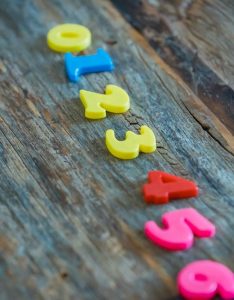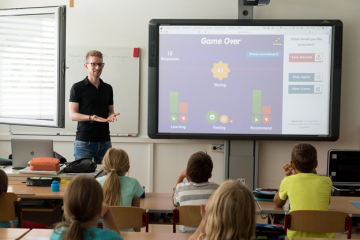
Getting children enthusiastic about schoolwork can be pretty tricky, especially if they have difficulty concentrating in class. It would be best to utilize entertaining tools to spike their interest and motivate them to learn. However, not everyone knows the best teaching mechanisms or how to use them. So, if you’re looking for ways to inspire your child to learn, you’re in luck. This article has curated the top six tools to encourage young children to learn.
A Threat-Free Environment
Children learn better when you let them unleash their abilities in conditions without threats or triggers like abuse, reproach, and comparisons. A threat-free environment implies that the child will be under little pressure while learning, which will help them learn at their pace. This kind of environment predisposes your child to better understanding and retention.
The ideal learning environment is free of emotional or psychological harm. It allows children to comfortably express themselves and ask questions when confused about a particular topic. Research has shown that students in a threat-free environment shared their thoughts honestly and were nonjudgmental. So, teachers should try their best to make the classroom a fun and threat-free place, rather than one with unhealthy competition and constant comparison.
Group Learning
Although group learning has many benefits for young children, it is one of the most underused teaching methods. Group learning not only improves their cognitive skills, it also enhances their social skills. Since children can relate better with their peers, they learn by discussing topics and ideas.
Group learning helps build healthy relationships, supporting a healthy and threat-free environment for learning. It also helps build teamwork among young children, a trait that will come in handy when they join the workforce later in life. And if your child is shy or nervous, interacting with their mates will build their self-esteem and leadership skills.
Fun Learning

Children always like to play, regardless of where they are, but parents and teachers rarely see the opportunity in this behavior. Rather than limit your child’s playtime, why not leverage it? Try blending fun and entertaining activities with your lessons. You can help children focus and develop the zeal to learn if you entertain them.
Educational games are good examples of fun teaching methods. Platforms centered around online math for kids use these games to attract more parents and teachers to sign up their kids. For instance, math isn’t the most exciting subject for many students because of its abstract nature. So when teaching kids math games, choose activities that improve their problem-solving skills, mental speed, and counting.
You can also use toys to teach younger children. Playing with toys like building blocks can lead them to count and learn addition and subtraction. Puzzles and riddles are other great ways for your child to learn math. Games like these will help children build cognitive skills, and as they solve puzzle and riddle games, they will think through problems and provide solutions.
The Right Books
Although many kids struggle to understand what they read, there are reliable ways to fix it. Getting these children to read appropriate books for their ages is one strategy. You can also introduce them to visual dictionaries at a young age. That way, they learn to associate words with images of things they already know, thus improving their comprehension while reading.
Don’t assume your kiddos will love to read the kinds of books you loved as a child. Times change, and you will want to keep up with new and updated materials. Rather than force your child to learn history, for example, you can pay attention to the topics they love to talk about and get books on those themes.
Appreciation
When you celebrate your child’s effort, it helps to strengthen their growth and development. Despite how big or little the effort they make, encouraging them can boost their morale to do better. Let your child know that you are proud of them, even for the little things they do; they will work harder to make you prouder.
When you celebrate your children, they know you are interested in them and their activities. Displaying their artwork on the wall or fridge shows your child that their achievements are worth showcasing. Letting them know that there’s a gift for making an effort will motivate them to do more.
Esteem-Building
Building your child’s self-esteem is another tool for motivating them to learn. Kids who have attentive parents will feel good about themselves and have more confidence to try new things. Monitoring and applauding their positive behaviors will build self-esteem that only keeps improving.
A healthy self-esteem will help your kiddos accept their shortcomings and try again even after failing. So, try introducing esteem-building activities to your household. Give your children the opportunity to try new things and guide them. Outline the traits that you are proud of and correct them with positive words. Building their self-esteem will encourage them to learn, associate more at school, and compete for leadership positions.
Conclusion
Children need support from their parents and teachers to become better versions of themselves. As their guardians, you should motivate them to learn and become interested in schoolwork. Constructive criticism, the right teaching tools, and constant praise will encourage them to do better. By taking the appropriate approach to teaching children, you will see distinct improvements in their grades, self-esteem, and zeal to learn.
Author Bio:
Jessica Kaminski is a math tutor at Brighterly with a Master’s degree in Mathematics from Ostravská Univerzita. She is an expert with a lot of teaching experience under her belt. Her love for kids led her to write about her experiences and encourage other teachers and parents to teach kids properly. Jessica currently works with children to unleash their potential through online education.


